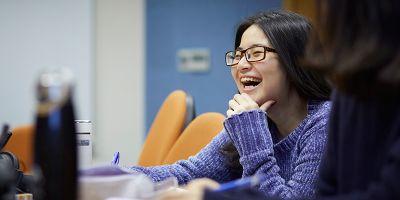Dr Thea Pitman awarded AHRC Grant
Dr Thea Pitman has been awarded an AHRC grant for her project 'Sumak Kawsay and the Sustainable Development Agenda: Critical Debates & Creative Responses from a Latin American Indigenous Perspective".
Congratulations to Dr Thea Pitman who has been awarded £60,000 from the AHRC Research Network, Highlight notice for international development for her project ‘Sumak Kawsay and the Sustainable Development Agenda: Critical Debates and Creative Responses from a Latin American Indigenous Perspective’.
The network is made up of project partners in Brazil and Colombia (the NGO Thydêwá and the Pueblos en Camino network), and academics based at the Universidad Autónoma de Occidente, Cali, the Universidade Federal do Rio de Janeiro, and the University of Bristol. It is led by Dr Thea Pitman at the University of Leeds.
To attend the joint launch of Dr Pitman’s project with Professor Cooke’s latest GCRF network grant, join us on Tuesday 14 November, 17.30 - 20.30 at The Carriageworks, Leeds as part of Leeds International Film Festival. For more info and to book visit the Leeds International Film Festival website.
About the Project
‘Sumak kawsay’ is a Kichwa word meaning ‘good living’ or ‘living well’, and is often also referred to as ‘buen vivir’ in Spanish. This concept has become hugely prominent in Latin America in recent years, featuring in the Ecuadorean and Bolivian constitutions since 2008 and 2009 respectively. The basic principles of Sumak Kawsay include concern for the environment, peaceful communal living and the reduction of inequalities, both economic and social – everyone should live ‘well’ but not ‘better’ nor ‘at the expense of others living less well’. While these principles might ostensibly seem to align rather well with the discourse of sustainable development as expressed in the United Nations’ 2016 Sustainable Development Goals, from the perspective of indigenous communities themselves this alignment is seen as rather more problematic.
The research network will focus on these issues with indigenous communities in the North-East of Brazil and the South-West of Colombia through a programme of collaborative research that will lead to the elaboration of a creative digital artefact that will seek to find a more intuitive way for the network of ideas that comes out of the discussions held in these communities to be expressed. The overarching goal of this creative digital artefact is to explore how the Sustainable Development Goals might better take account of the perspectives of indigenous communities who have previously criticised these goals for being ‘culturally blind’. The project will involve indigenous community-based workshops run by the Brazilian and Colombian project coordinators, as well as 3 sets of international workshops and symposia in Brazil, Colombia and the UK. It will run from November 2017 to December 2018.



